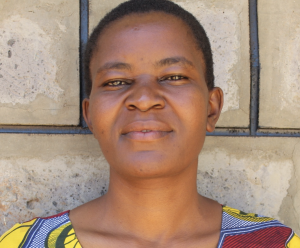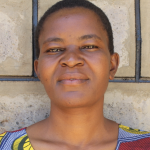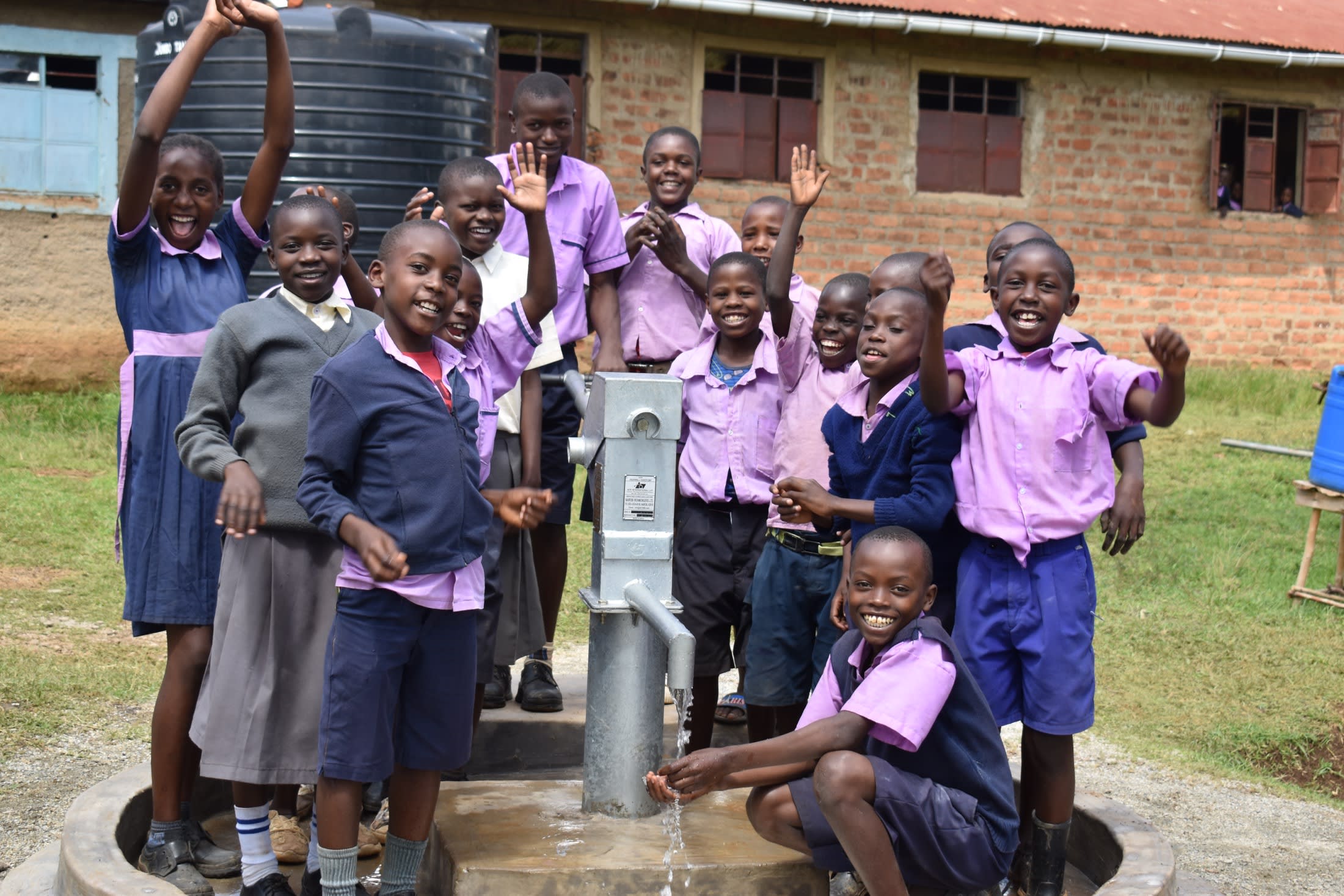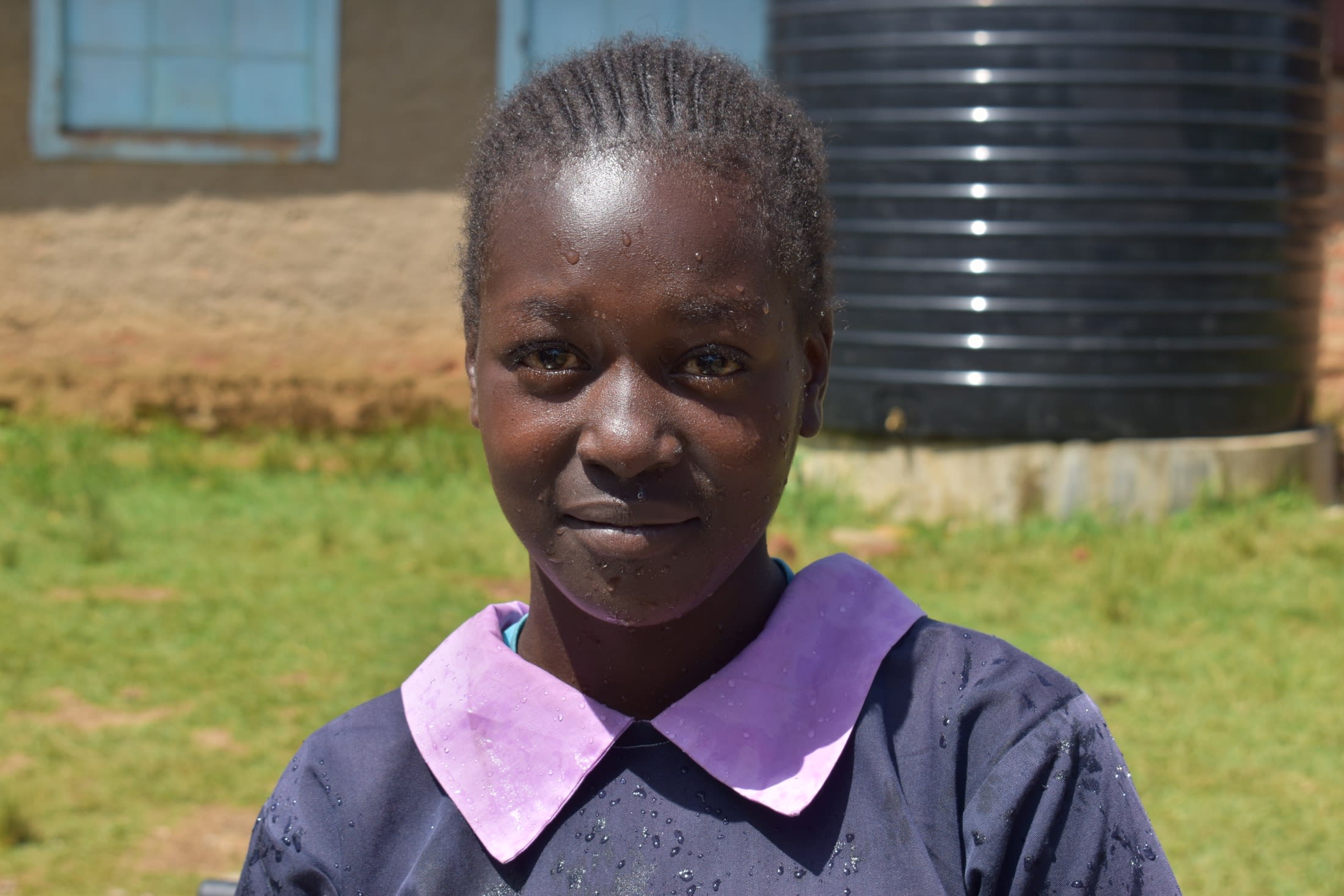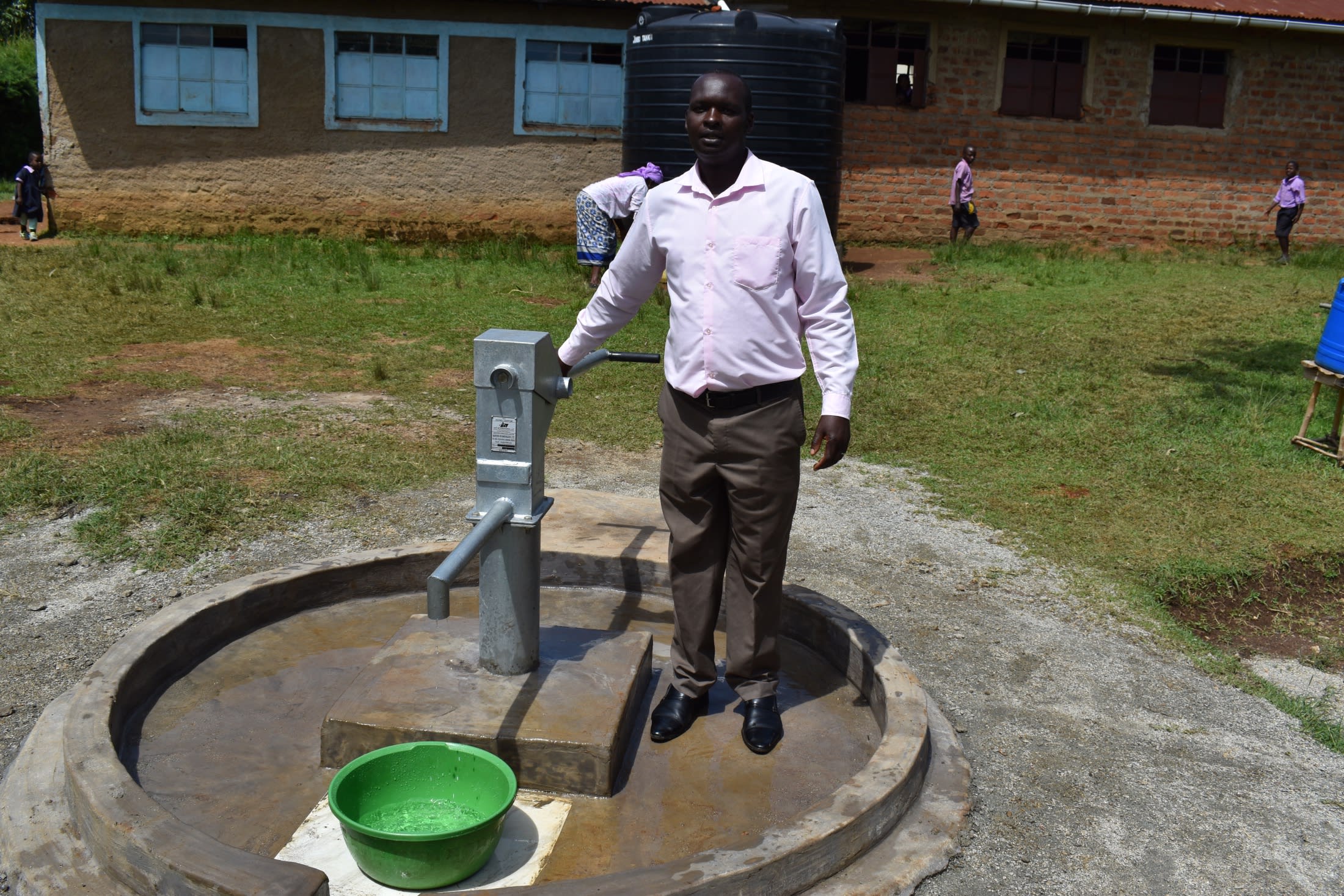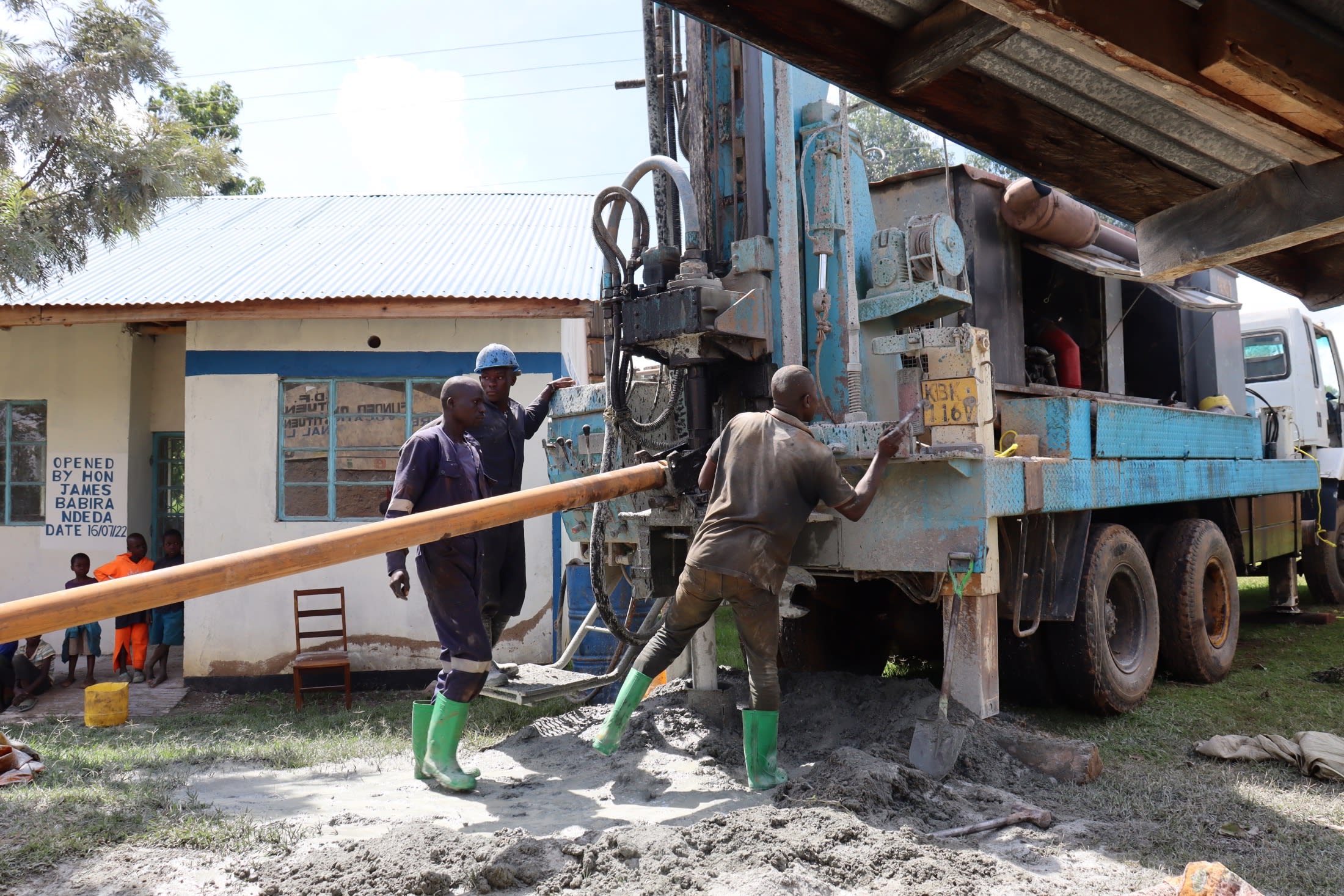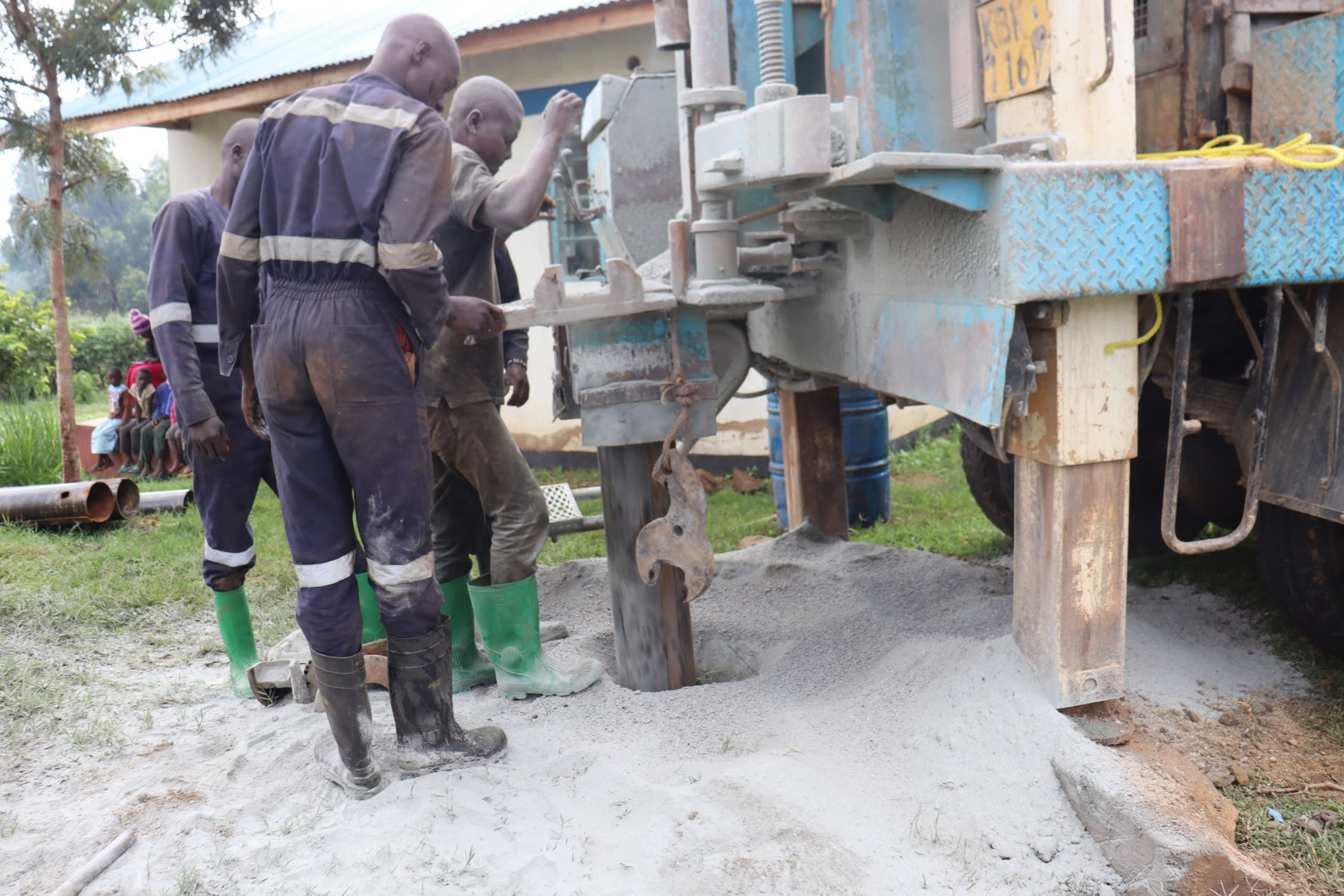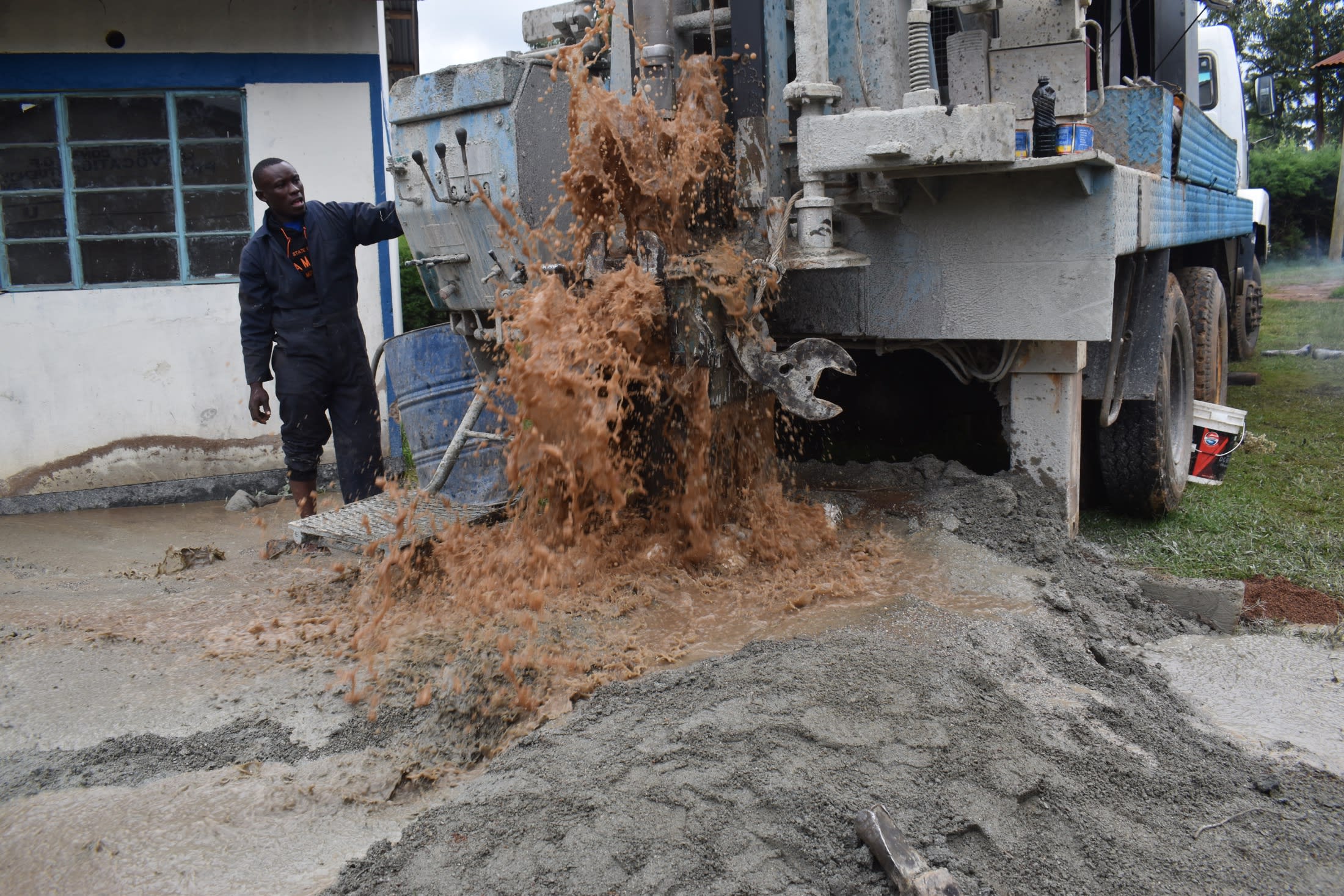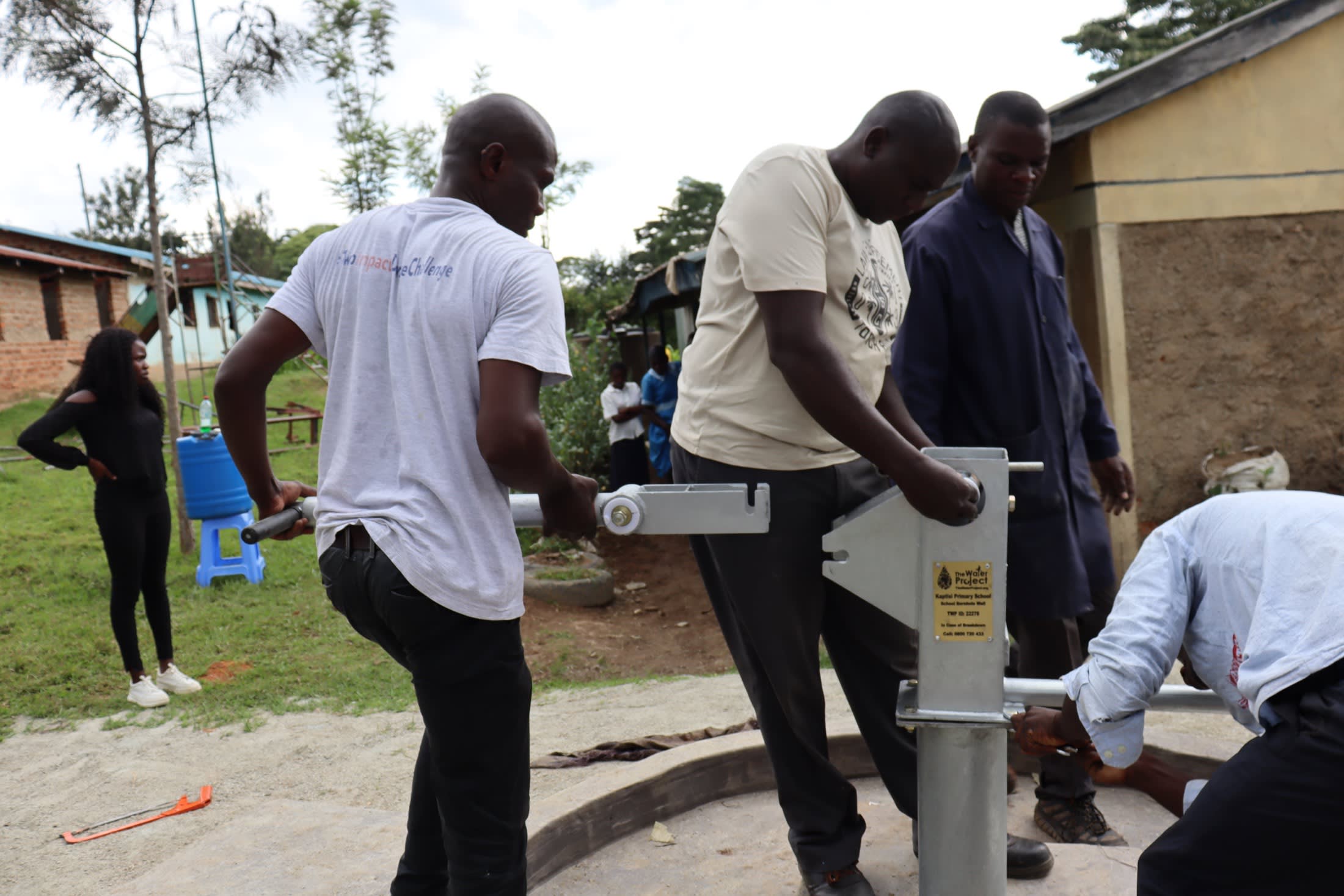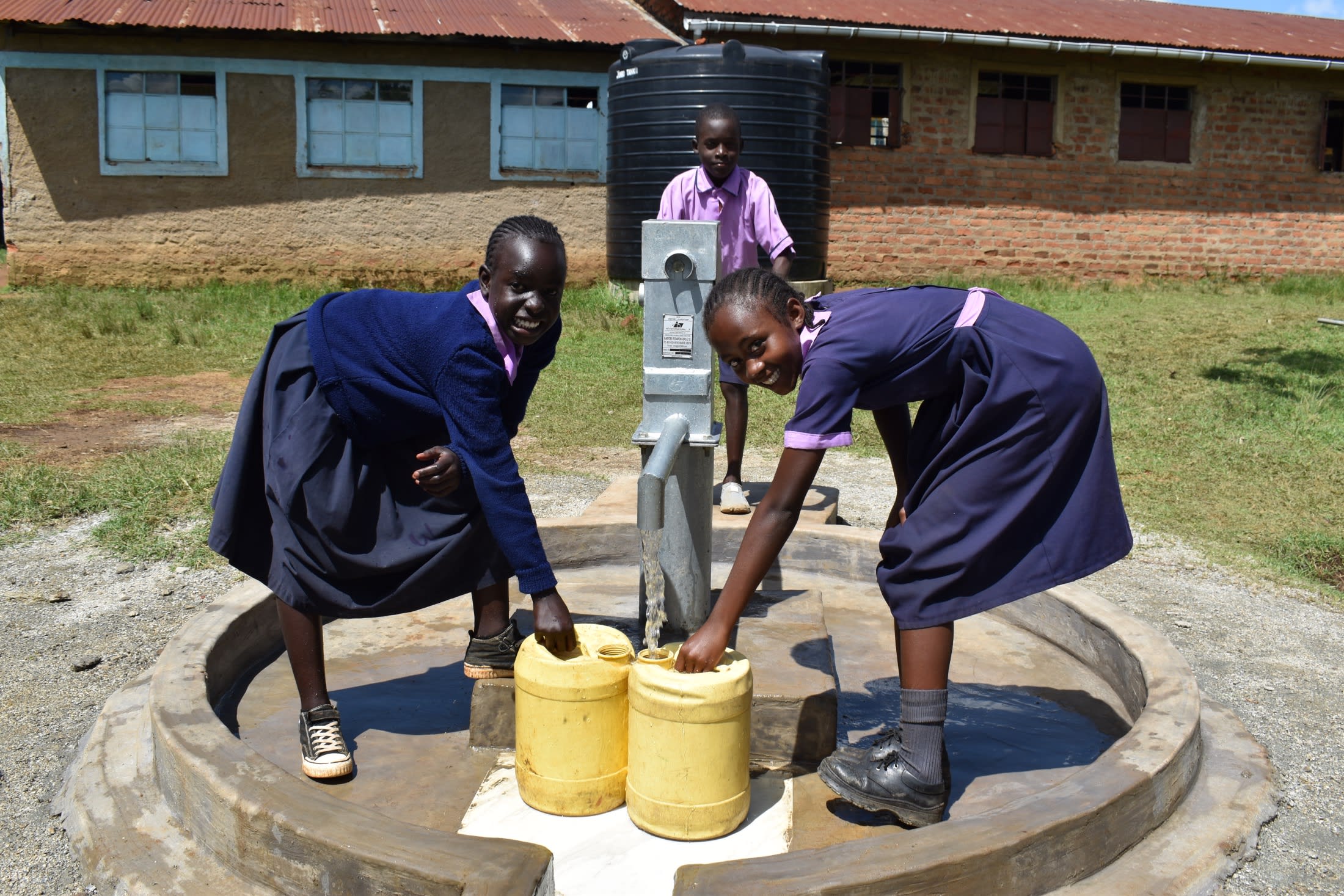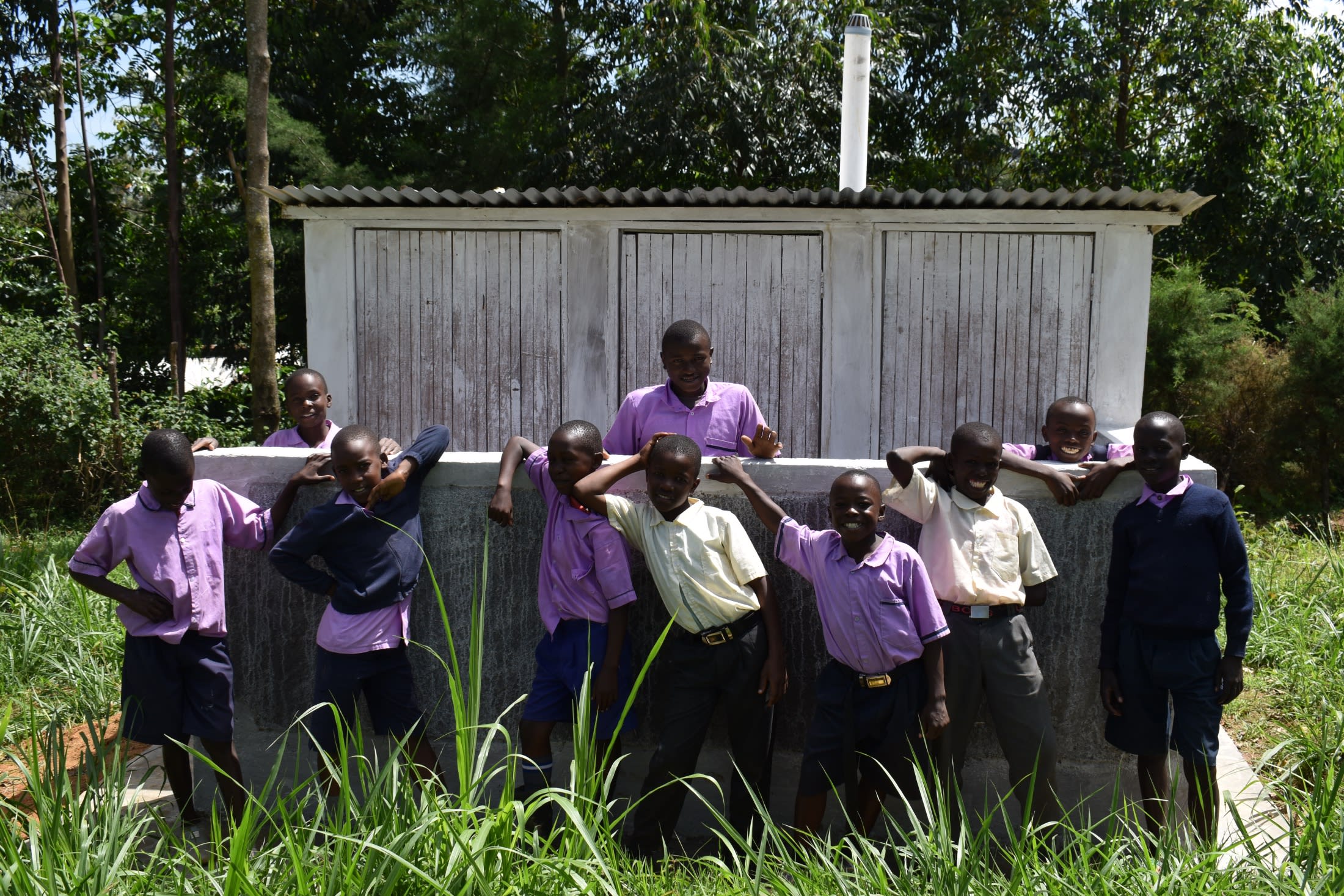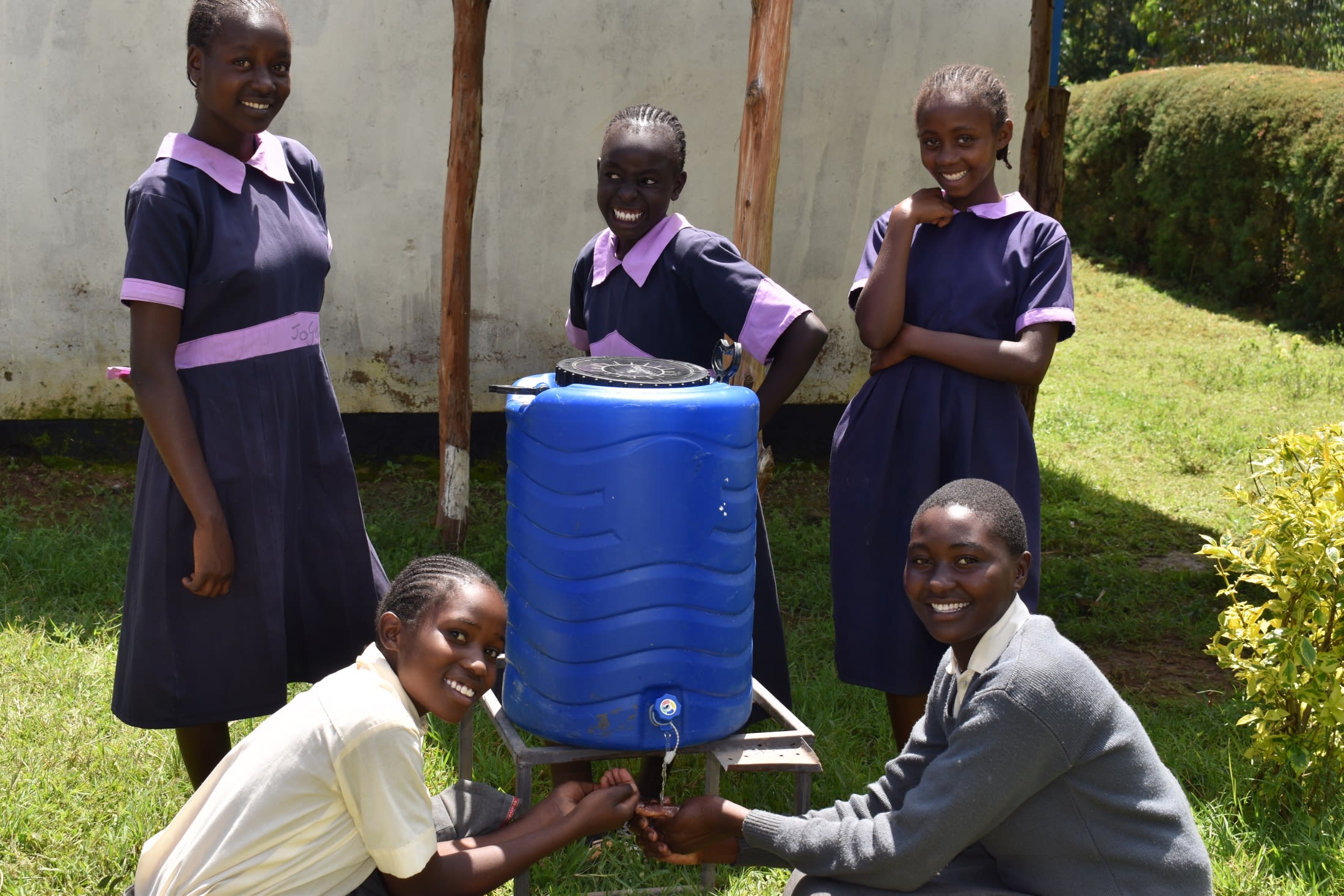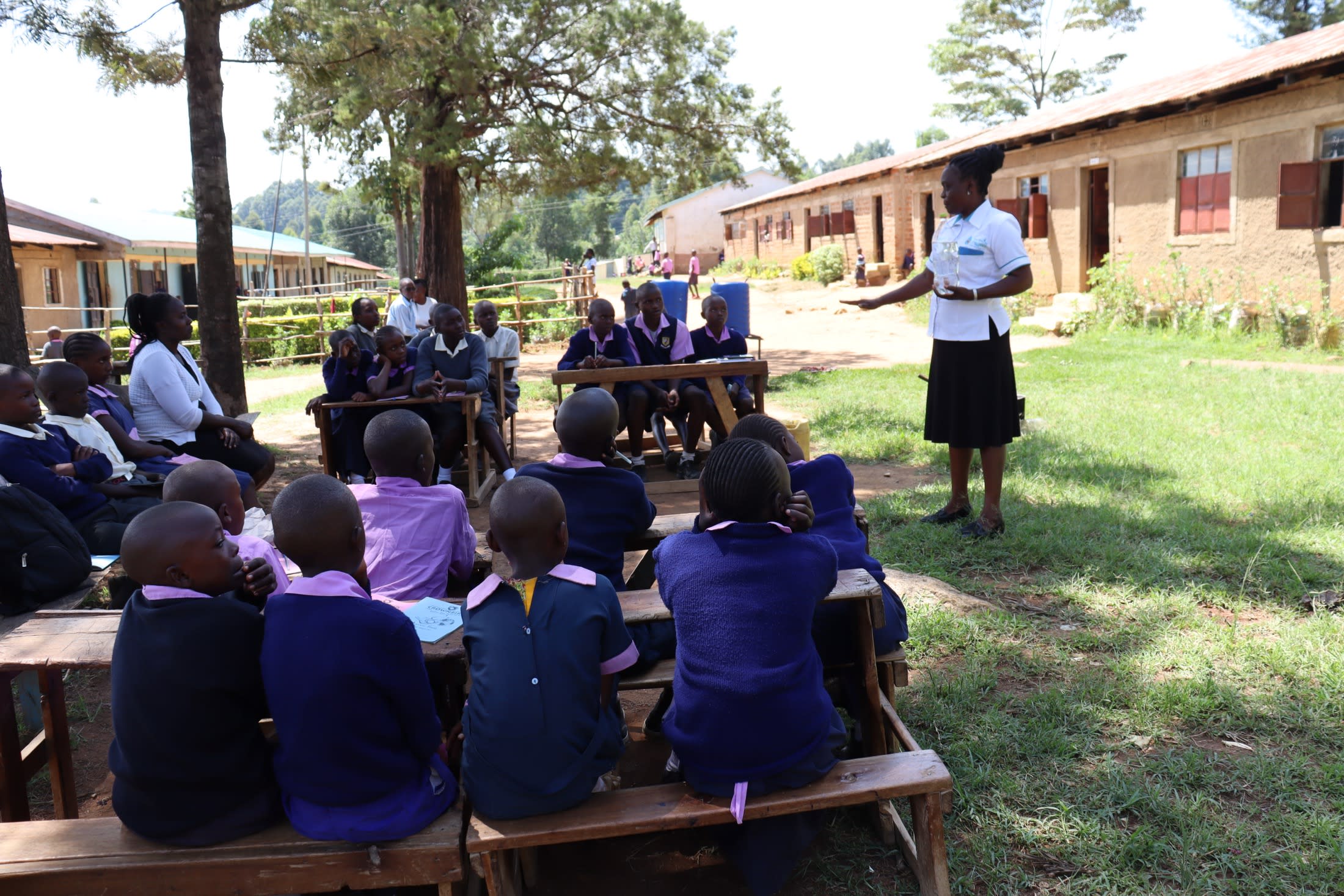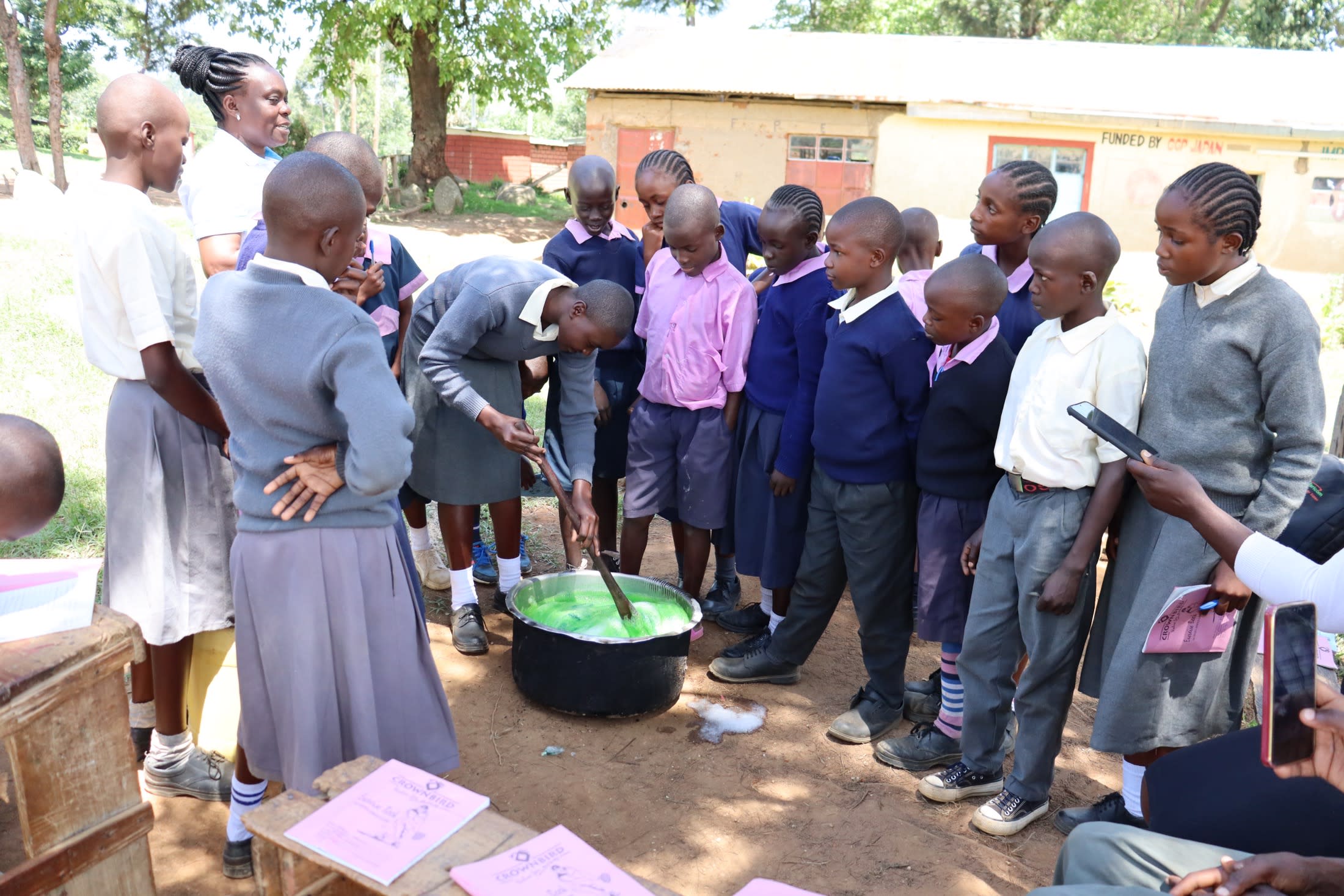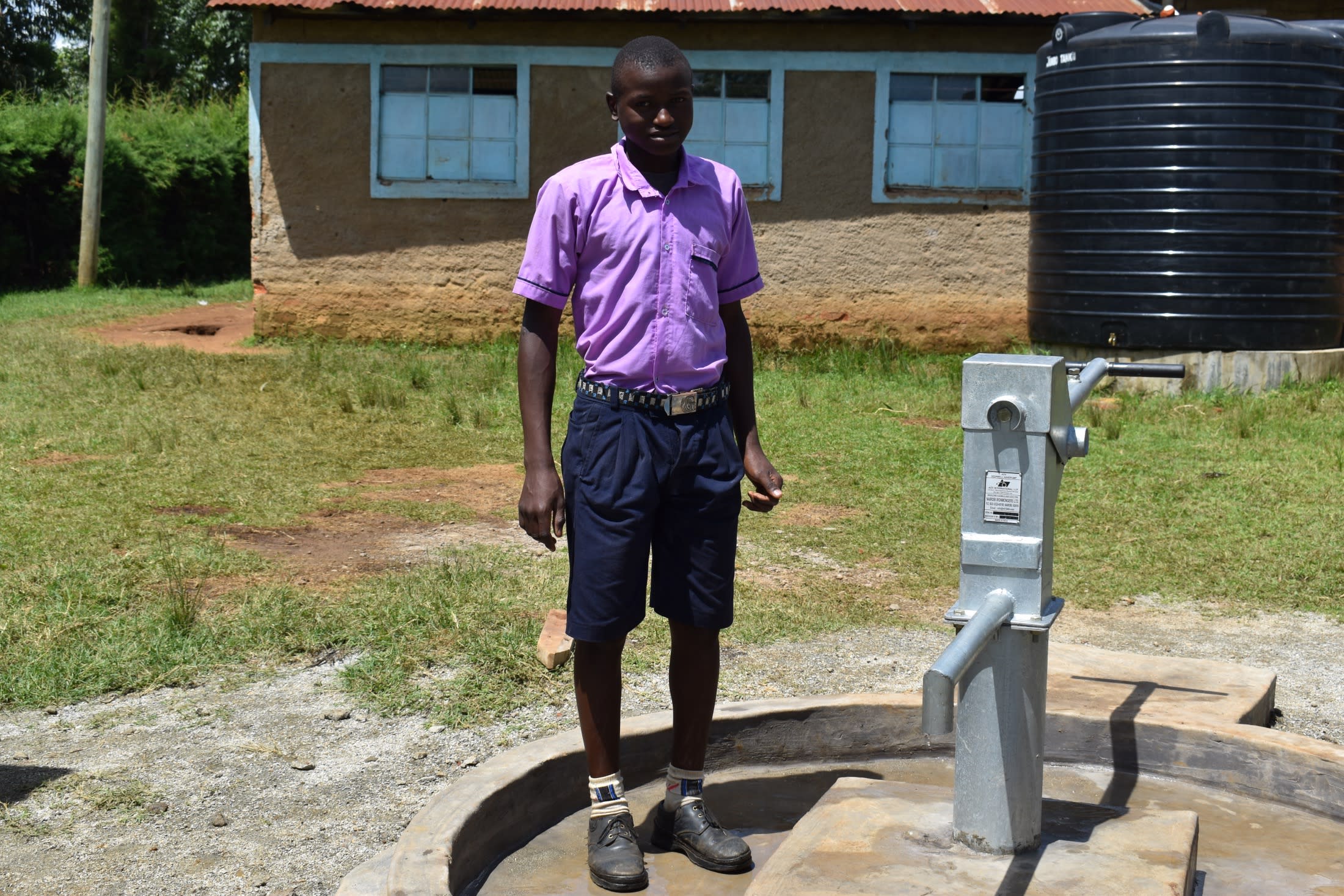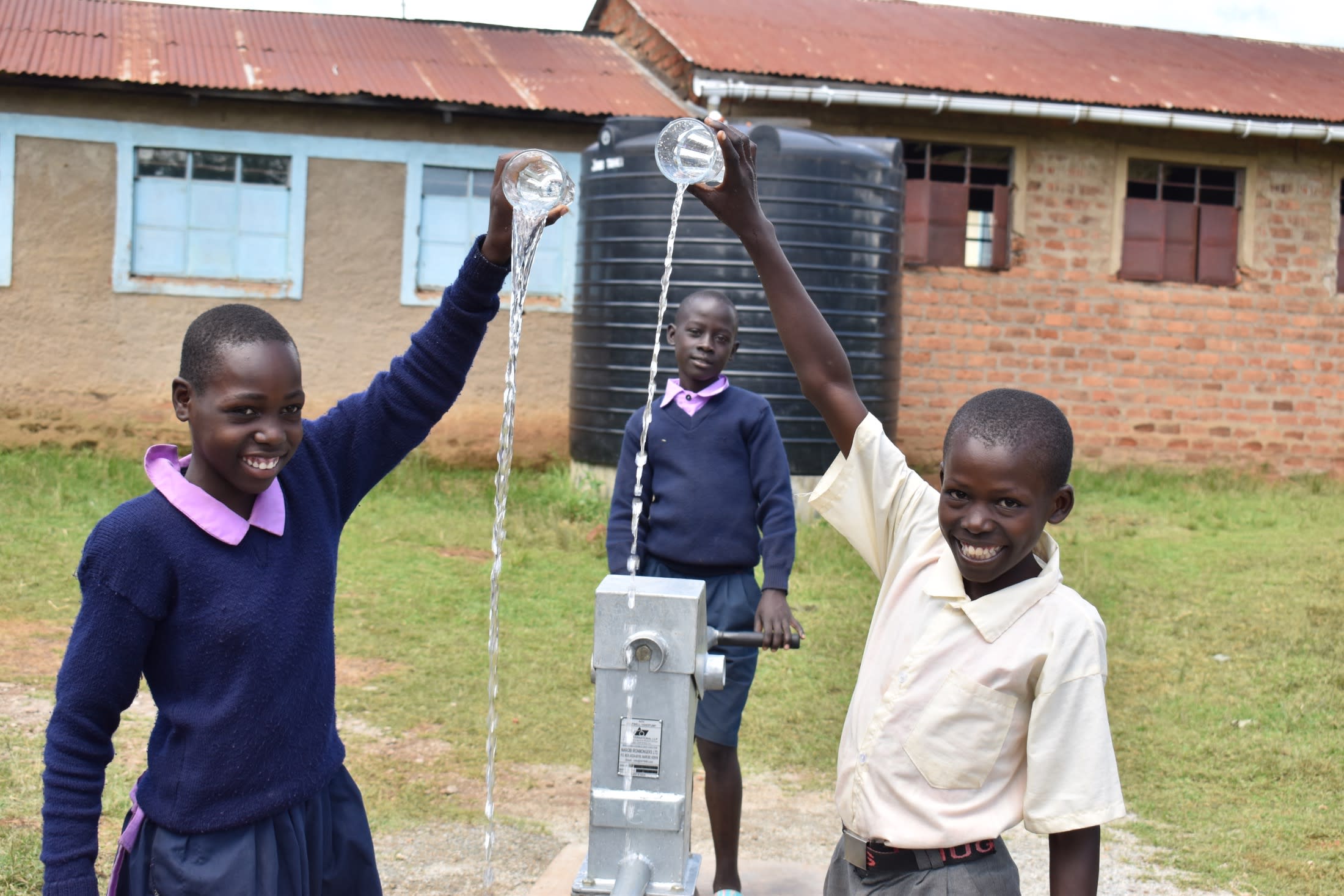The 583 students and 21 teachers of Kaptisi Primary School do not have a reliable, safe water source. Instead, they must rely on the water they can find around the community, but what they collect is making everyone ill and stealing their health, time, and financial resources.
Students bring water from home each morning, but what they can carry is not sufficient to meet the school's daily needs for drinking, cooking, and cleaning.
So every morning, after arriving early to school, the older students leave the school campus to supplement the water from a nearby stream. Yet still, it is never enough, students and teachers are left thirsty, and the school goes uncleaned.
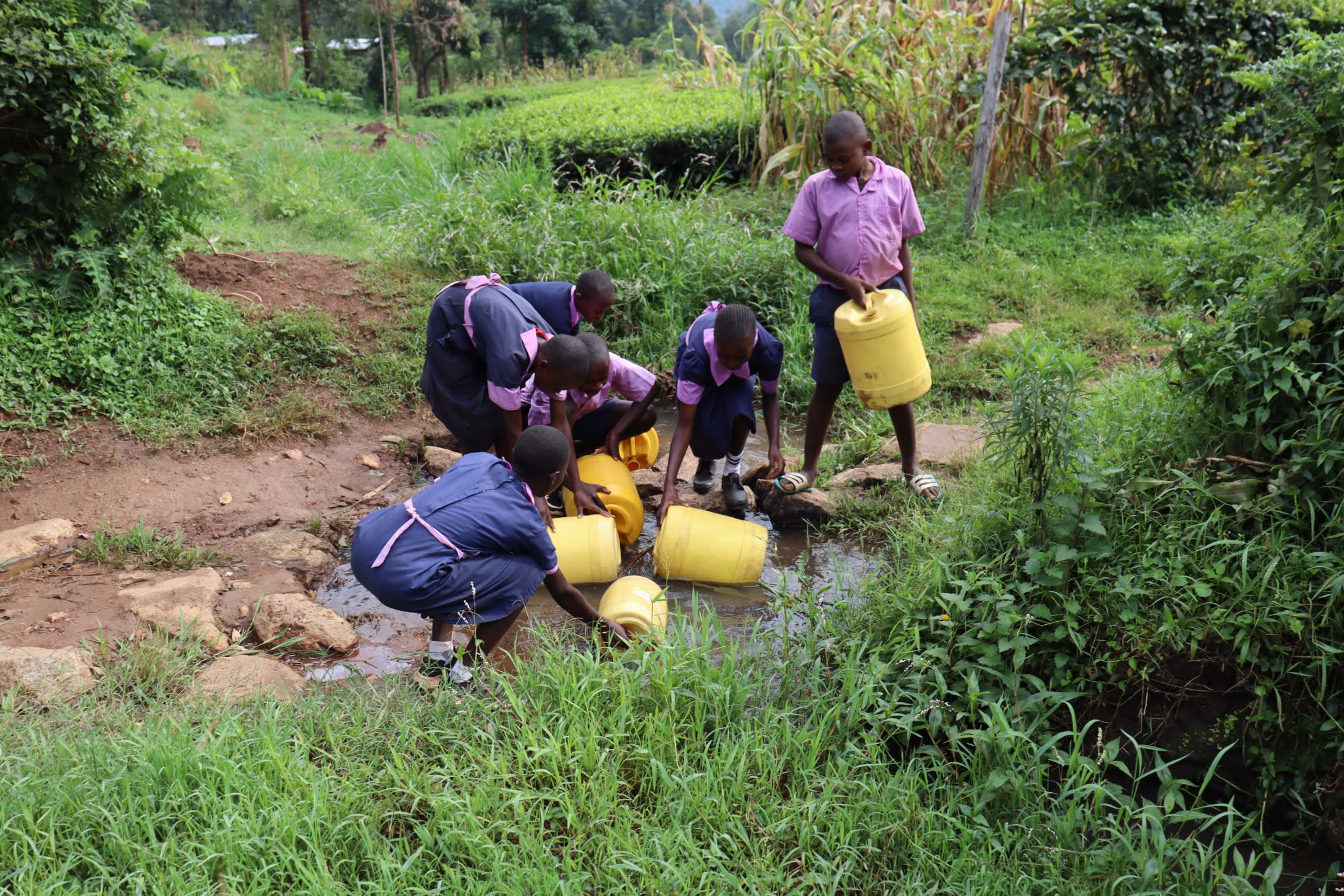
The pool of water (shown above) where older students collect water each morning is small but popular in the community, so pupils waste valuable time waiting in long lines. Once it is finally their turn, they must go through the painstakingly slow process of laying their containers sideways in the muddy water to fill up since the pool is so shallow.
But sadly, regardless of all of the student's tireless efforts, their hard work only offers contaminated water, and everyone is suffering by consuming it.
"This current water situation has affected my work plans because most of the time [I] am in hospital [and] this causes me to be out of the school most of [the] time. As a class teacher of class six, [I] am so demoralized," said 41-year-old teacher Gaylord Avedi Kibande, shown below, collecting water.
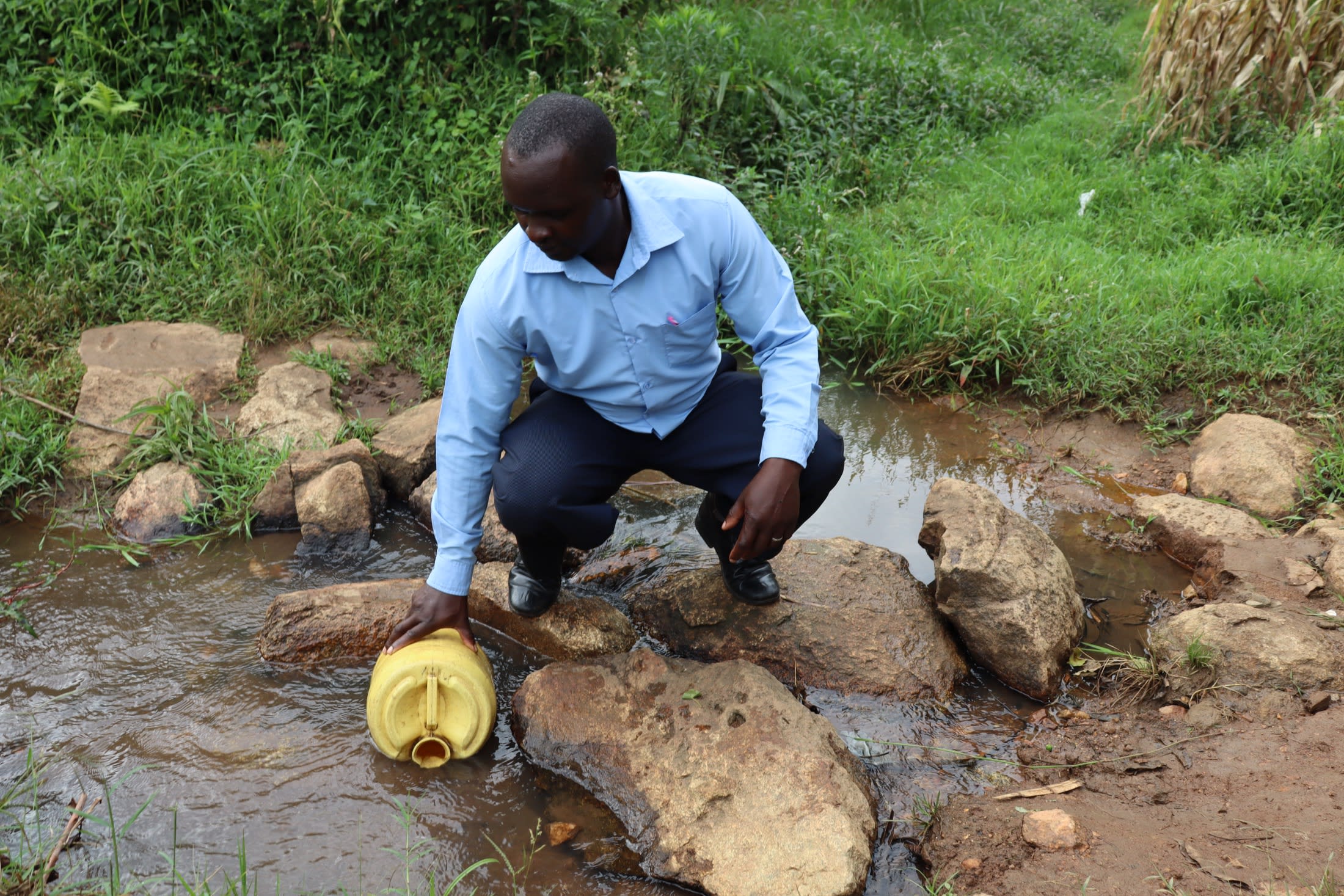
"[I] am personally affected because most of the time [I] am either at [the] hospital or at home receiving medication. There is a drop in my performance because of absenteeism. This has resulted [in] me repeating the same class," said 14-year-old Joyce M., shown below carrying water.
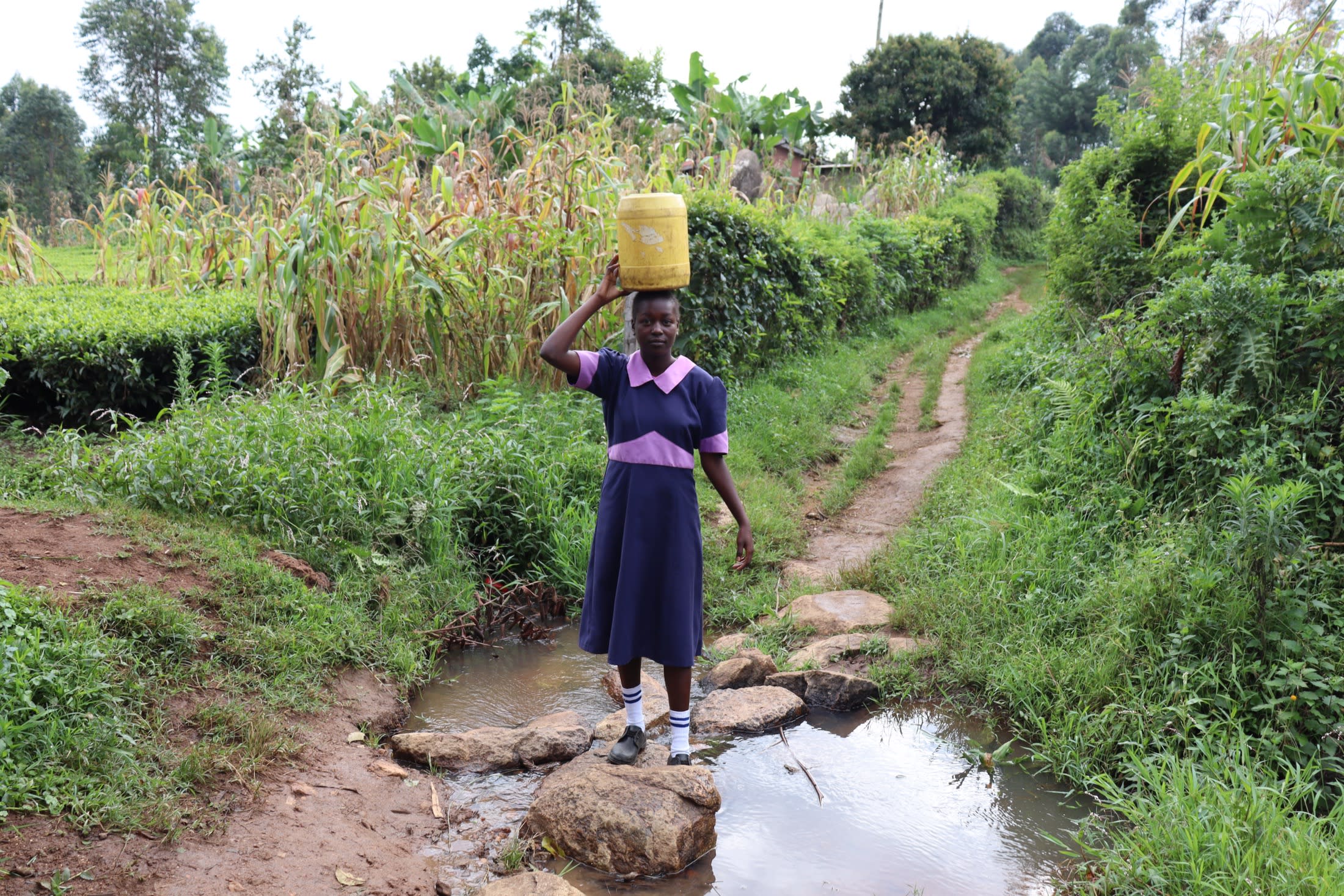
Hopefully, by installing a well at Kaptisi Primary School, everyone can regain their health, families can regain their resources, and students can get back to learning.
What We Can Do:
New Well
We conducted a hydrogeological survey at this school and the results indicated the water table beneath it is an ideal candidate for a borehole well. Due to a borehole well's unique ability to tap into a safe, year-round water column, it will be poised to serve all of the water needs for this school's large population, even through the dry months.
The school will help collect the needed construction materials such as sand, rocks, and water for mixing cement. They will also provide housing and meals for the work team, in addition to providing local laborers. We will complement their materials by providing an expert team of artisans and drilling professionals, tools, hardware, and the hand-pump. Once finished, water from the well will then be used by the school’s students and staff for drinking, handwashing, cooking, cleaning, and much more.
Handwashing Stations
The student health club will oversee the two new handwashing stations we will provide, and make sure they are kept clean and in working condition. The club leaders will fill the handwashing stations with water daily and make sure they are always supplied with a cleaning agent such as soap or ash.
VIP Latrines
We will construct two triple-door latrine blocks using local materials that the school will help gather. Three doors will serve the girls and three doors will serve the boys. All of these new latrines will have cement floors that are designed to be easy to use and to clean. And with a borehole right on school property, there should be enough water to keep them clean.
Training on Health, Hygiene, COVID-19, and More
We will hold a one-day intensive training session with students, teachers, and parents. This training will cover a wide range of topics including COVID-19 symptoms, transmission routes, and prevention; personal and environmental hygiene; and the operation and maintenance of the borehole, latrines, and handwashing stations. There will be a special emphasis on handwashing.
Our team of facilitators will use a variety of methods to train, including participatory hygiene and sanitation transformation, and asset-based community development. We will initiate a student health club, which will prepare students to lead other pupils into healthy habits at school and at home. We will also lead lectures, group discussions, and provide illustrative handouts to teach health topics and ways to promote good hygiene practices within the school including handwashing and water treatment. We will then conduct a series of follow-up trainings before transitioning to our regularly scheduled support visits throughout the year.
We and the school strongly believe that all of these components will work together to improve standards at this school, which will help lead to better student academic performance and will help unlock the opportunity for these students to live better, healthier lives.
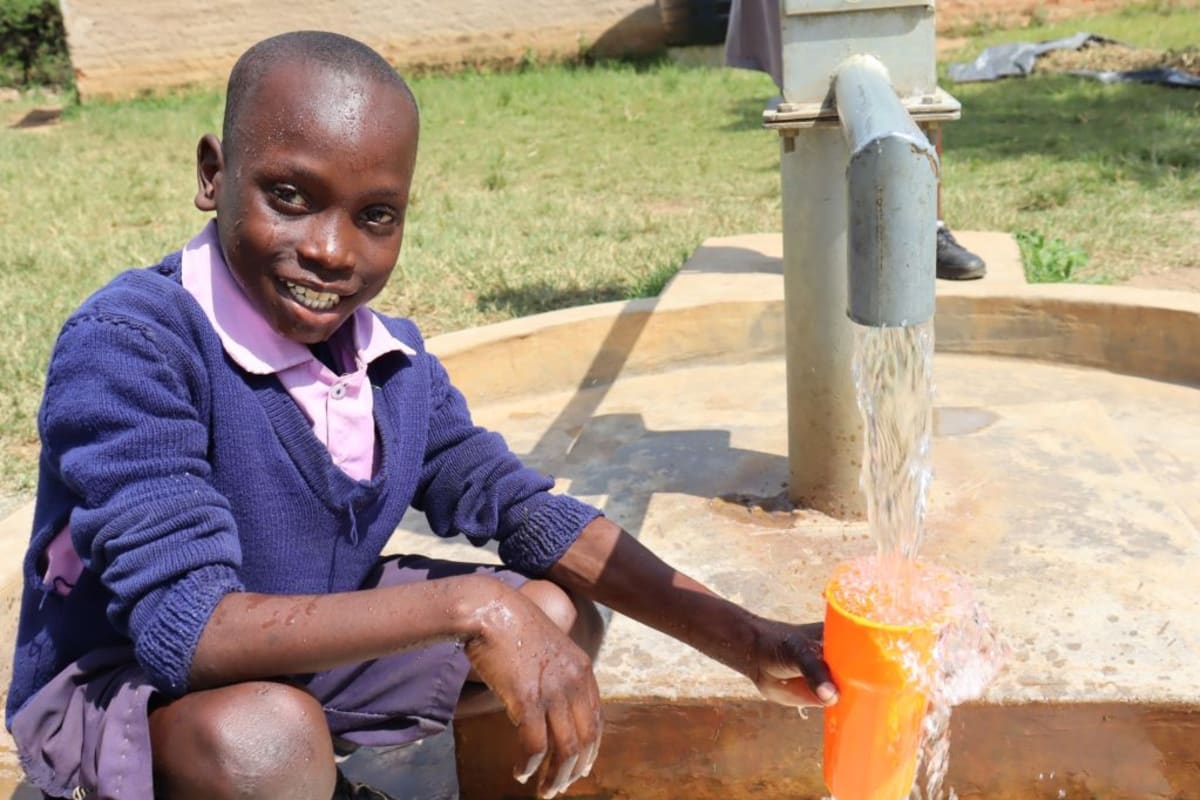
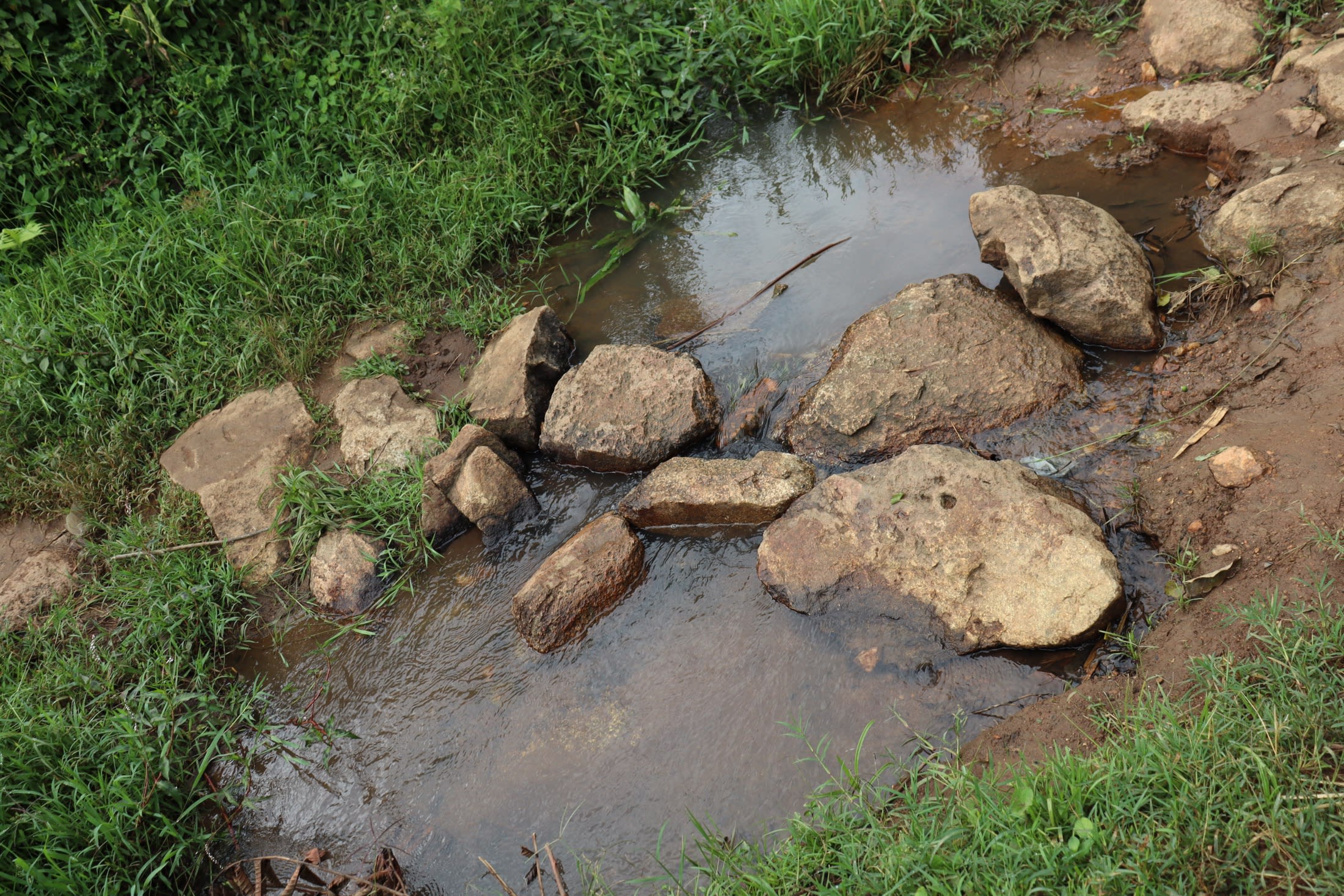
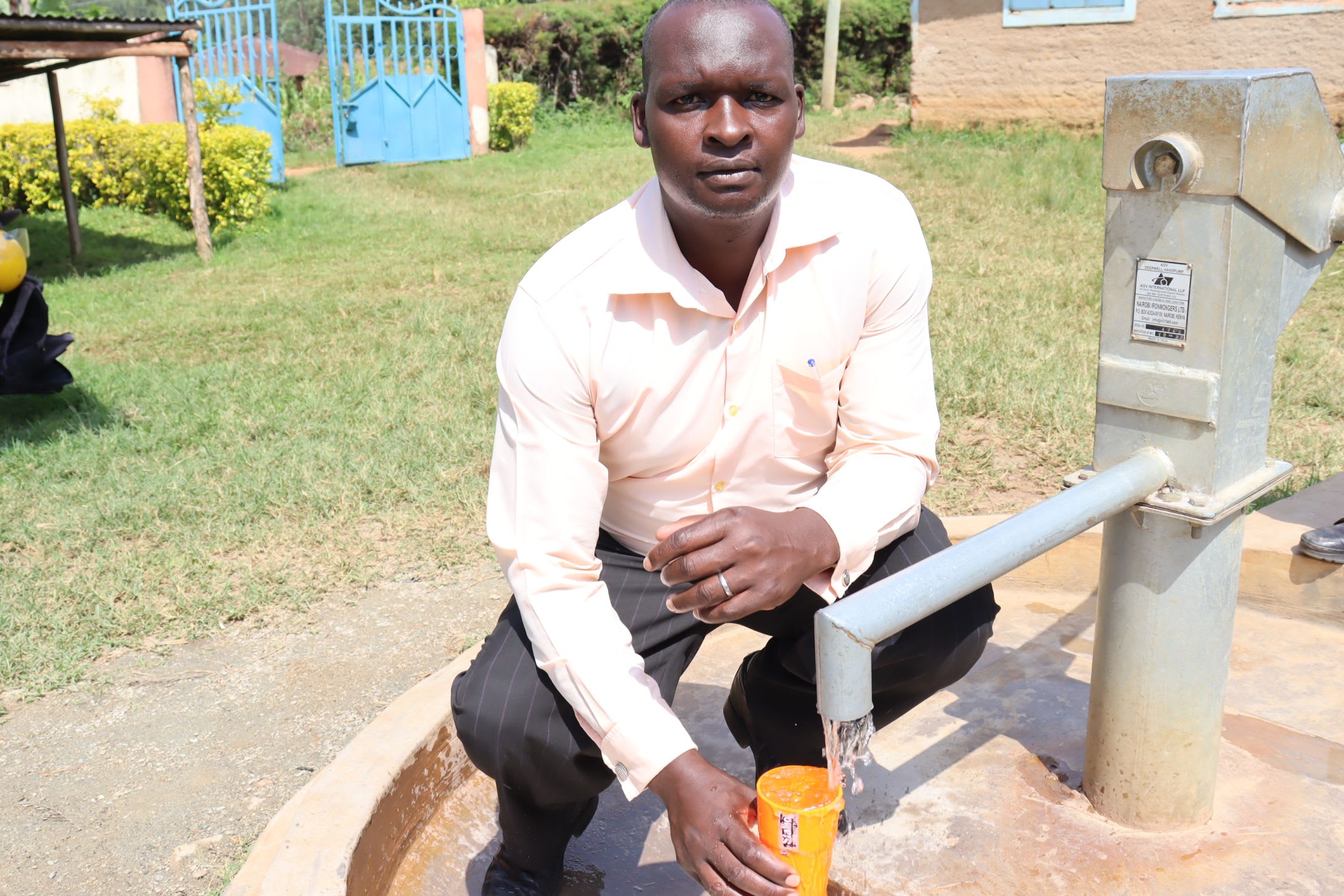
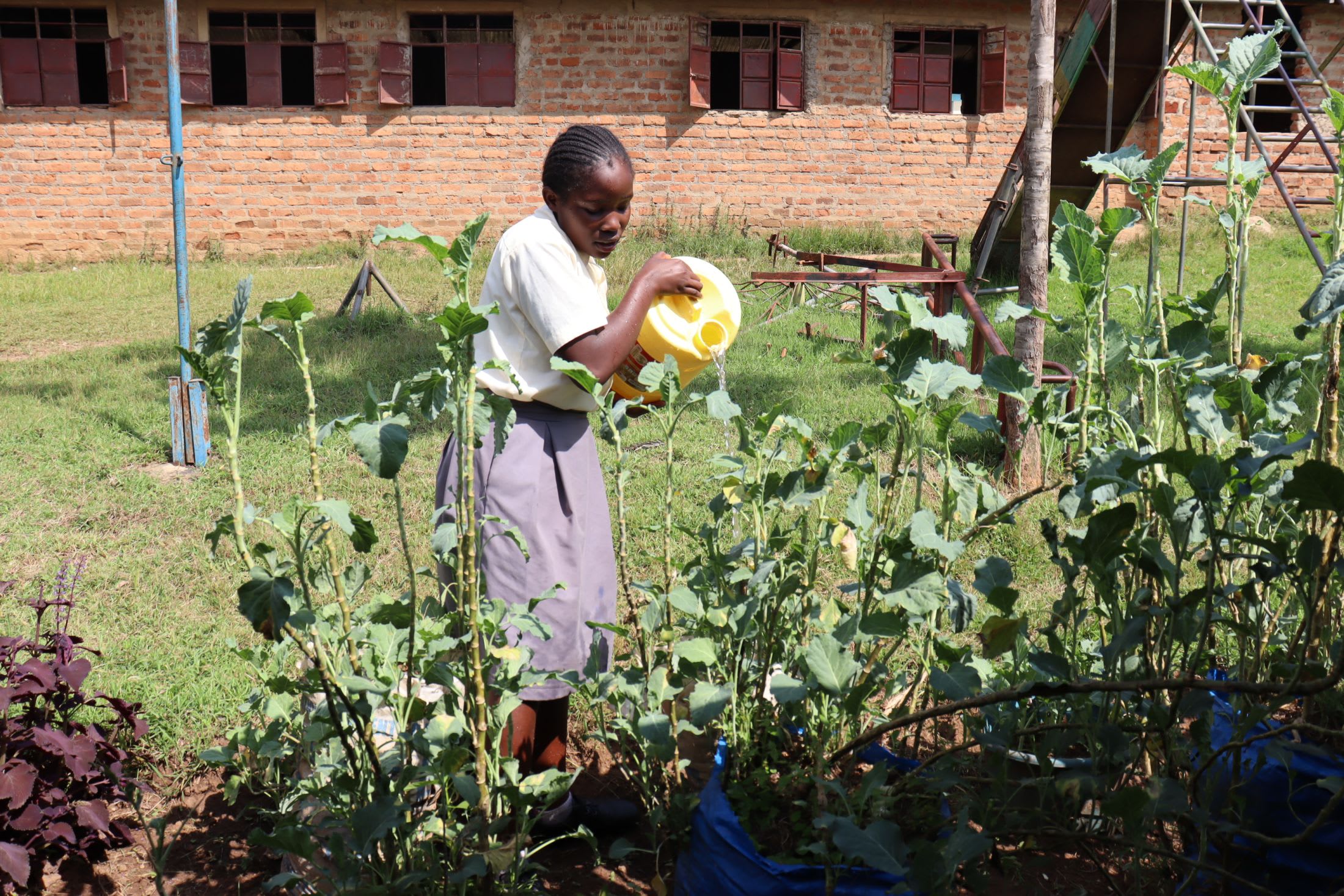

 Borehole Well and Hand Pump
Borehole Well and Hand Pump
 Rehabilitation Project
Rehabilitation Project












